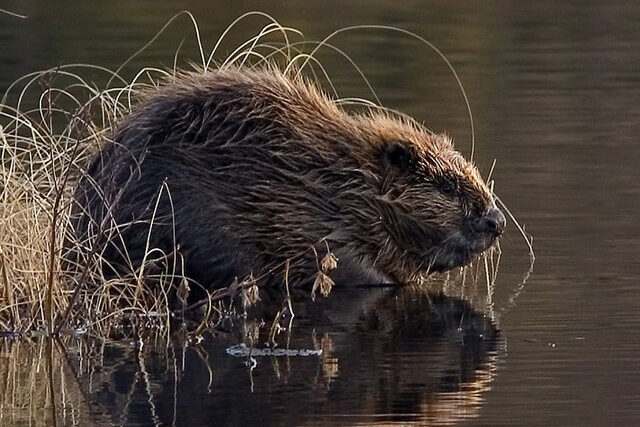
After a 400-year absence, beavers have returned to Lincolnshire as part of a rewilding initiative.
Two Eurasian beavers were released into a 70-acre enclosure at Wild Wrendale near Searby, marking a milestone in the conservation effort.
Jack and Hannah Dale, with support from the Beaver Trust and various wildlife organisations, facilitated the relocation.
The couple decided four years ago to convert their low-lying and unproductive farm into a nature restoration project after facing challenges in profitable farming.
The rewilding project at Wild Wrendale aims to enhance biodiversity, with last year recording over 450 nesting sites and more than 50 bird species, including skylarks and tawny owls. Other wildlife, such as foxes, hares, deer, and hedgehogs, also thrives on the farm.
“It’s so encouraging to see how quickly nature is able to bounce back if it is given the space,” Mrs Dale said.
Beavers, known for their habitat engineering skills, are expected to contribute to creating new habitats for various species.
“Beavers are native to Britain but they were eradicated completely over 400 years ago, killed for meat, fur and castoreum,” Mrs Dale said.
“They are a keystone species and when you remove a keystone species from the environment, it dramatically alters the whole ecosystem and has a knock-on effect on a whole host of other species.
“We are so excited to see how the beavers transform the woodland and streams.”
Mrs. Dale, an artist and owner of a giftware business, draws inspiration for her nature-themed artwork from the diverse wildlife at the farm.
“I’m working on a big project to celebrate what is happening,” she added.
The project has garnered support from Natural England, Celtic Rewilding, ecologist Derek Gow, and the Lincolnshire Wildlife Trust.
——————————————————————————
At Natural World Fund, we are passionate about stopping the decline in our wildlife.
The decline in our wildlife is shocking and frightening. Without much more support, many of the animals we know and love will continue in their decline towards extinction.
When you help to restore a patch of degraded land through rewilding to forests, meadows, or wetlands, you have a massive impact on the biodiversity at a local level. You give animals a home and food that they otherwise would not have had, and it has a positive snowball effect on the food chain.
We are convinced that this is much better for the UK than growing lots of fast-growing coniferous trees, solely to remove carbon, that don’t actually help our animals to thrive.
This is why we stand for restoring nature in the UK through responsible rewilding. For us, it is the right thing to do. Let’s do what’s right for nature!
Donate today at https://naturalworldfund.com/ and join in the solution!

